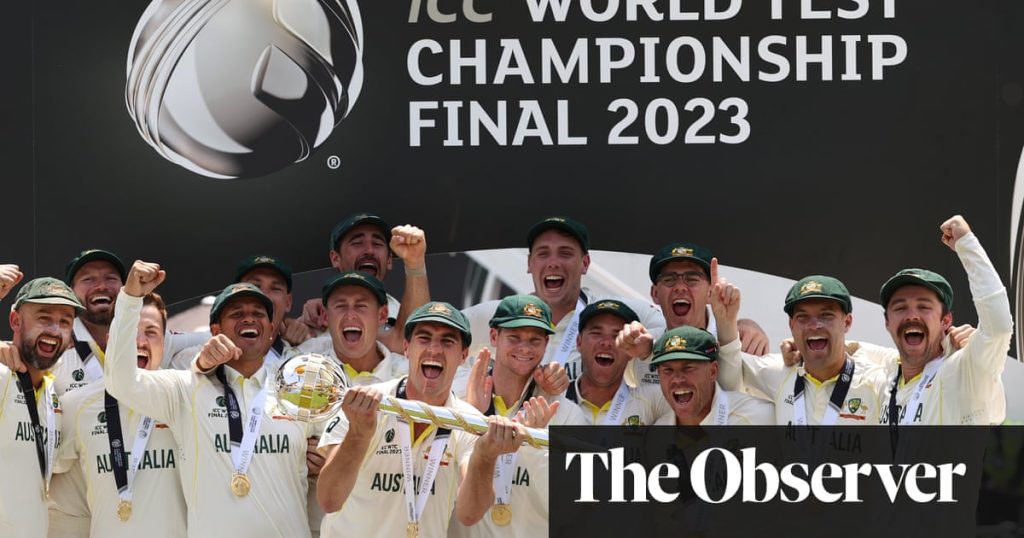The International Cricket Council has decided to postpone plans for a two-division structure in Test cricket. The upcoming World Test Championship (WTC), commencing this summer, will continue in its current single-league format.
The two-tier Test cricket proposal will be discussed at ICC meetings in Zimbabwe this weekend, but sources indicate that Cricket Australia’s suggestion to implement divisions will not be presented for a vote.
The ICC recognizes the need for further examination regarding the sporting and financial ramifications of establishing a two-division system, which would mark one of the most significant shifts in Test cricket’s 133-year history. Discussions could resume when the planning for the 2027-2029 cycle is underway.
Instead of transitioning to two divisions of six by including Afghanistan, Ireland, and Zimbabwe, the forthcoming WTC, which runs from this summer until 2027, will maintain its existing format featuring nine teams. The tournament will kick off with England’s five-Test home series against India in June, shortly after the final match between Australia and South Africa at Lord’s.
The idea for two divisions arose from discussions between Cricket Australia and the England and Wales Cricket Board during the women’s Ashes series in January. Cricket Australia, particularly, is keen on the division structure as it would facilitate more frequent matches among Australia, England, and India, thereby maximizing financial opportunities.
However, other Test-playing nations are apprehensive about further marginalization by the dominant “big three” and seek more clarity on financial equity and the mechanics of promotion and relegation before agreeing to a vote on the proposal.
In addition to the discussion on divisions, significant amendments to the WTC points system will also be explored, including potential bonus points based on victory margins and an adjustment for wins against stronger opponents, as well as rewards for away victories. The current scoring system, where every WTC match carries equal value in points, has faced criticism, particularly from the big three teams that play more matches against each other.



